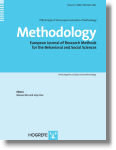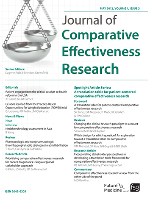
Research Synthesis Methods
Scope & Guideline
Enhancing Educational Outcomes through Methodological Rigor
Introduction
Aims and Scopes
- Methodological Innovations in Evidence Synthesis:
The journal aims to advance methodological frameworks, including new statistical techniques and software tools, for conducting systematic reviews and meta-analyses. This includes the development of Bayesian methods, machine learning applications, and novel approaches for data extraction and analysis. - Assessment of Bias and Quality in Research:
A core focus is on the evaluation of bias, including risk of bias assessments in randomized controlled trials and observational studies. The journal publishes studies that propose new tools and methods for assessing the integrity and quality of research evidence. - Integration of Individual Participant Data (IPD):
The journal emphasizes the importance of integrating individual participant data in meta-analysis to improve accuracy and generalizability of findings. This includes exploring methodologies for analyzing IPD and understanding treatment-covariate interactions. - Network Meta-Analysis and Comparative Effectiveness Research:
Research Synthesis Methods includes significant contributions on network meta-analysis, which allows for the comparison of multiple interventions simultaneously. This area explores methodological challenges and applications in health technology assessments. - Automation and Technology in Evidence Synthesis:
The journal showcases research on the use of automation tools and artificial intelligence to streamline systematic reviews, including automated data extraction and literature searching, aiming to enhance efficiency and reproducibility in research synthesis. - Reproducibility and Transparency in Research:
A consistent focus is on enhancing the reproducibility of research synthesis methods, including the development of guidelines and tools to support transparent reporting and open science practices.
Trending and Emerging
- Artificial Intelligence and Machine Learning in Evidence Synthesis:
There is a growing emphasis on the application of AI and machine learning techniques to facilitate various aspects of systematic reviews, such as data extraction and literature searching. This trend reflects the need for innovative solutions to enhance efficiency and accuracy in evidence synthesis. - Bayesian Approaches and Flexible Modeling:
The journal is increasingly featuring studies that utilize Bayesian methodologies for meta-analysis, particularly in handling complex data structures and incorporating prior information. This trend signifies a shift towards more nuanced statistical modeling in evidence synthesis. - Focus on Reproducibility and Open Science Practices:
Recent publications indicate a heightened focus on reproducibility and transparency in research synthesis methods. This includes discussions around best practices for data sharing, reporting standards, and the development of tools that facilitate open science. - Network Meta-Analysis and Comparative Effectiveness Research:
The interest in network meta-analysis continues to rise, particularly in its applications for comparing multiple treatment options and informing health policy decisions. This trend reflects the growing complexity of treatment landscapes and the need for robust comparative data. - Integration of Real-World Evidence:
There is an emerging trend towards integrating real-world evidence into systematic reviews and meta-analyses. This reflects a shift in focus toward understanding the effectiveness of interventions in practical settings, beyond traditional clinical trial data. - Methodological Frameworks for Addressing Missing Data:
Recent studies show an increasing focus on developing methodologies to handle missing data in meta-analyses. This is critical for improving the validity of conclusions drawn from synthesized evidence, especially in complex health research contexts.
Declining or Waning
- Traditional Meta-Analysis Techniques:
There has been a noticeable decline in the publication of studies focusing solely on traditional meta-analysis methods without incorporating advanced statistical techniques or novel approaches. This suggests a shift towards more complex methodologies that address the limitations of conventional practices. - Basic Systematic Review Methodologies:
Research that merely describes basic systematic review processes is becoming less prevalent. The journal appears to prefer contributions that provide innovative frameworks or address specific challenges in systematic reviews rather than reiterating established methodologies. - Qualitative Evidence Synthesis:
There is a waning interest in the synthesis of qualitative research within the journal, as the focus has increasingly shifted towards quantitative methods and their integration with qualitative findings. This may indicate a broader trend in the field prioritizing quantitative evidence synthesis. - Overviews of Systematic Reviews:
The publication of studies that solely focus on overviews of systematic reviews is declining. This could suggest a transition towards more nuanced discussions that incorporate lessons learned from multiple systematic reviews rather than summarizing existing overviews.
Similar Journals

Systematic Reviews
Advancing evidence-based medicine through rigorous analysis.Systematic Reviews is a leading open-access journal published by BMC, focused on the comprehensive and systematic analysis of health-related literature. Established in 2002, the journal has significantly contributed to the field of Medicine (miscellaneous) and has been recognized as a Q1 journal in the 2023 category quartiles, ranking 48 out of 398 in its field with an impressive 88th percentile on Scopus. With its open-access model initiated in 2012, Systematic Reviews ensures that vital research findings are freely available to researchers, practitioners, and students worldwide. The journal aims to publish high-quality systematic reviews that inform clinical guidelines, healthcare decisions, and policy-making, contributing to evidence-based practice in medicine. Located in the United Kingdom, it serves as an essential resource for advancing knowledge within the global health community, encouraging rigorous research methodology and facilitating the dissemination of impactful findings.

Statistical Applications in Genetics and Molecular Biology
Empowering Biological Research with Robust Statistical ToolsStatistical Applications in Genetics and Molecular Biology, published by WALTER DE GRUYTER GMBH, serves as a vital academic platform for researchers and professionals dedicated to the integration of statistical methodologies within the fields of genetics and molecular biology. Established in Germany, this interdisciplinary journal, with an ISSN of 2194-6302 and E-ISSN 1544-6115, seeks to bridge the gap between statistical theory and biological applications, making it an essential reading for those engaged in data analysis, biological research, and computational methods. Despite its current Q4 ranking in key categories such as Computational Mathematics and Genetics, the journal continues to strive for academic rigor and relevance, addressing contemporary challenges and advancements in the field. The journal encourages the submission of high-quality, peer-reviewed research that showcases innovative statistical approaches to genetic and molecular data, providing valuable insights and fostering collaboration among scientists. Exploratory or applied studies that demonstrate effective statistical applications are particularly welcomed, ensuring that both novel and established methodologies are discussed, alongside practical case studies that advance the understanding of biological phenomena. As an open-access journal, it aims to widen the accessibility of cutting-edge research, emphasizing the importance of transparency and sharing knowledge among the scientific community.

Methodology-European Journal of Research Methods for the Behavioral and Social Sciences
Fostering scholarly communication through rigorous research methods.Methodology-European Journal of Research Methods for the Behavioral and Social Sciences is a premier, open access journal dedicated to advancing the field of research methods within the behavioral and social sciences. Published by PSYCHOPEN, this journal plays a vital role in disseminating innovative methodologies and rigorous research designs to foster scholarly communication among researchers, professionals, and students. With an impact factor reflecting its credibility and relevance—categorized within the Q2 in Psychology and Q1 in Social Sciences in 2023—this journal ensures that contemporary scientific practices are at the forefront of academic discourse. With its origins dating back to 2005, Methodology is committed to providing free and unfettered access to its contributions, encouraging wide-reaching application and replication of research findings. Located in Trier, Germany, the journal is a cornerstone for those aiming to enhance their research skills and appreciate the nuanced complexities involved in behavioral and social investigations.

Journal of Comparative Effectiveness Research
Unlocking the potential of healthcare interventions.Journal of Comparative Effectiveness Research is a leading academic journal dedicated to the evaluation of healthcare interventions and practices, published by Becaris Publishing. Since transitioning to a fully Open Access model in 2023, the journal has expanded its accessibility to a global audience of researchers, healthcare professionals, and policy makers. With a focus on comparative effectiveness in health policy, it has achieved a notable ranking of #132 out of 310 in the Scopus category for Medicine and Health Policy, placing it in the 57th percentile for scholarly impact. Operating from the United Kingdom, the journal encompasses research from 2012 to 2024 and firmly establishes itself in the academic landscape as a Q2 journal in the Health Policy category as of 2023. By disseminating high-quality, evidence-based research, the Journal of Comparative Effectiveness Research plays a vital role in informing clinical practice and health policy decision-making, making it an essential resource for those dedicated to improving health outcomes.

COMPUTATIONAL STATISTICS
Unveiling the synergy between computational mathematics and statistical inference.COMPUTATIONAL STATISTICS, published by Springer Heidelberg, is a prominent international journal that bridges the fields of computational mathematics and statistical analysis. Since its inception in 1996, this journal has served as a critical platform for disseminating high-quality research and advancements in statistical methodologies and computational techniques. Operating under Germany's esteemed scholarly tradition, it holds a commendable Q2 ranking in key categories such as Computational Mathematics and Statistics and Probability, reflecting its significant impact and relevance in the academic community. Although it does not offer Open Access, the journal remains a vital resource for researchers, professionals, and students seeking to enhance their understanding of the intricate interplay between computation and statistical inference. Each issue features rigorously peer-reviewed articles that contribute to the development of innovative methodologies and applications, thereby solidifying its role in shaping the future of computational statistics.

Cochrane Database of Systematic Reviews
Advancing Knowledge with Rigorous Research SynthesisThe Cochrane Database of Systematic Reviews is a premier journal published by WILEY, focusing on the critical appraisal and synthesis of high-quality research in health care. With its dedication to evidence-based practice, this journal serves as a cornerstone for researchers, healthcare professionals, and students alike, offering pivotal insights through rigorous systematic reviews. Although it is not an open-access publication, its influence in guiding clinical decision-making and policy formulation is profound, underscored by its contributions to the advancement of healthcare knowledge. Based in the United States at 111 River St, Hoboken, NJ, the Cochrane Database has established itself as essential reading for those seeking to stay at the forefront of systematic reviews and meta-analyses in the medical field, ensuring that users are well-equipped with the evidence necessary for informed practice.

Integrative Medicine Research
Innovating Approaches to Holistic HealingIntegrative Medicine Research, published by Elsevier, is a premier journal dedicated to advancing the field of Complementary and Alternative Medicine. With an impact factor that reflects its esteemed position—ranking 15th out of 105 journals in its category as of 2023 and placing in the 86th percentile—this journal serves as a pivotal platform for researchers, professionals, and students alike. Since its transition to an Open Access model in 2012, it has enhanced the dissemination of critical research, fostering collaboration and application of integrative approaches to health and wellness. The journal encompasses a wide array of topics within its scope, encouraging submissions that contribute to the evidence base of integrative practices and their effects on health outcomes. As a quarterly publication based in South Korea, it emphasizes the importance of global perspectives in research, thereby inspiring innovation in complementary healthcare practices.

BMC Medical Research Methodology
Advancing the Standards of Medical Research MethodologyBMC Medical Research Methodology is a prestigious open-access journal published by BMC, dedicated to advancing the field of medical research methodologies. Launched in 2001, the journal has established itself as a vital resource for researchers, reflecting its high-quality contributions with a strong Q1 ranking in both Epidemiology and Health Informatics as of 2023. As a scholarly platform, it offers broad access globally, ensuring that the latest developments in research methodology are readily available to professionals, scholars, and students alike. With its commitment to enhancing the rigor and transparency of medical research, BMC Medical Research Methodology plays a critical role in shaping the future of evidence-based practices, making it an essential read for anyone involved in medical research. The journal is based in the United Kingdom at CAMPUS, 4 Crinan St, London N1 9XW, England, and provides comprehensive access options to facilitate the dissemination of knowledge and foster collaboration across the global research community.

Statistics and Applications
Unlocking the Potential of Statistics in Real-World Applications.Statistics and Applications is an esteemed academic journal dedicated to disseminating innovative research findings and advancements within the field of statistics and its diverse applications. Published by SOC STATISTICS COMPUTER & APPLICATIONS, this journal operates under an open access model, ensuring that critical knowledge and research are freely available to researchers, professionals, and students worldwide. With an ISSN of 2454-7395, it serves as a key platform for scholars to share their insights on statistical methodologies, computational techniques, and novel applications across various disciplines. Although the journal’s impact factor is not currently listed, its commitment to rigorous peer review and high-quality publications positions it as a valuable resource in the continuously evolving domain of statistics. By fostering collaboration among researchers and encouraging the sharing of knowledge, Statistics and Applications contributes significantly to the advancement of statistical science and its applications in real-world problems.

Health Services and Outcomes Research Methodology
Shaping the future of health research through rigorous analysis.Health Services and Outcomes Research Methodology is a premier journal published by Springer, dedicated to advancing the field of health services research through rigorous methodology. Established in the Netherlands, this journal operates without an Open Access model, ensuring a quality-controlled environment for distributing important findings in the health policy and public health domains. With a commendable impact factor that places it in the second quartile (Q2) for both Health Policy and Public Health, Environmental and Occupational Health categories, it ranks favorably in Scopus, showcasing its relevance and influence within these critical fields. Researchers, healthcare professionals, and graduate students will find this journal a vital resource for exploring innovative research methodologies and outcomes that critically inform health systems and policies. The journal spans contributions from the convergence years of 2000 to 2004, and continues to publish impactful studies every year to 2024, elevating the discourse surrounding health services research.